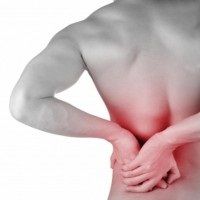Article
Severe Low Back Pain May Have Met Its Match
Author(s):
People with moderate to severe chronic low back pain may benefit from osteopathic manipulative treatment (OMT) before resorting to surgery.

People with moderate to severe chronic low back pain may benefit from osteopathic manipulative treatment (OMT) before resorting to surgery.
Low back pain can be a life-altering condition, yet finding an effective therapy remains challenging. Methylene blue injections have proven to work for some people, while motor control exercise has helped others. Due to the potentially addictive properties, prescription opioids may not be the preferred choice, but many patients have gone in that direction as well. OMT could be a good treatment option for certain patients, according to two studies by researchers from the University of North Texas.
OMT involves hands-on techniques to move muscles and joints. It differs from chiropractic work because this method is performed by an osteopathic physician in order to prevent and treat illness or injury. OMT isn’t exactly uncommon for low back pain, but questions on the treatment still linger.
- Read: Low Back Pain Reduced with Exercise and Education
In the new duo studies, the researchers set out to determine how effective six OMT sessions were over the span of eight weeks. A total of 455 men and women with at least three months of low back pain (ages 21 to 69) were included in the trial. Half of the participants received OMT and the other half were unknowingly in the control group — results were assessed four weeks after the final session.
Using the 100-mm visual analog scale (VAS) for low back pain intensity and the Roland-Morris Disability Questionnaire (RMDQ) for back-specific functioning, the median baseline scores were 50 mm (range: 34 to 64) and 6 (range: 4 to 11), respectively. Both OMT and control groups were similar in terms of smoking, comorbid conditions, and other factors, according to the report in The Journal of the American Osteopathic Association.
At the follow-up period, median VAS scores for low back pain intensity reduced to 20 mm (range: 2 to 36) in OMT patients and 12 mm (range: -5 to 25) for control patients. RMDQ score reduction was 2 (range: 0 to 5) and 2 (range: 0 to 4) for the OMT and control groups, respectively. The researchers determined that pain and function improvement from baseline depended on the patient.
Substantial benefit (defined as at least a 50% improvement from baseline) was reported in 114 of the 230 OMT patients (50%) and 79 of the 225 control patients (35%).
- Related: Migraine Risk Higher in Patients with Low Back Pain
“Subgrouping patients according to chronic low back pain intensity and function appears to be a simple strategy for identifying patients who can attain substantial improvement with OMT,” first author John C. Licciardone, DO, MS, MBA, said in a news release.
About one-fifth to one-fourth of patients proved to benefit from the OMT. This may seem like an insignificant amount, but the second study revealed which patients experience the most benefits. It appears that those with the worse pain and higher degree of disability reported the most benefits from OMT.
“From a cost and safety perspective, OMT should be considered before progressing to more costly or invasive interventions,” Licciardone confirmed.
Also on MD Magazine >>> Early Physical Therapy for Low Back Pain Most Effective and Least Costly Option




